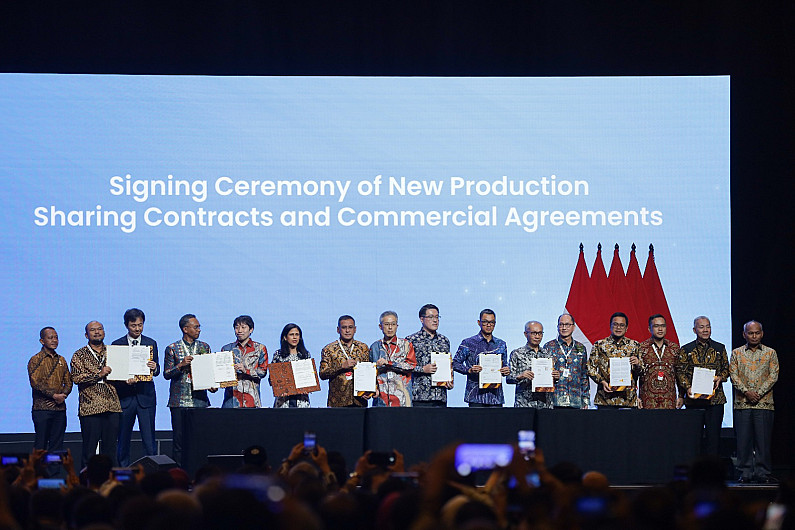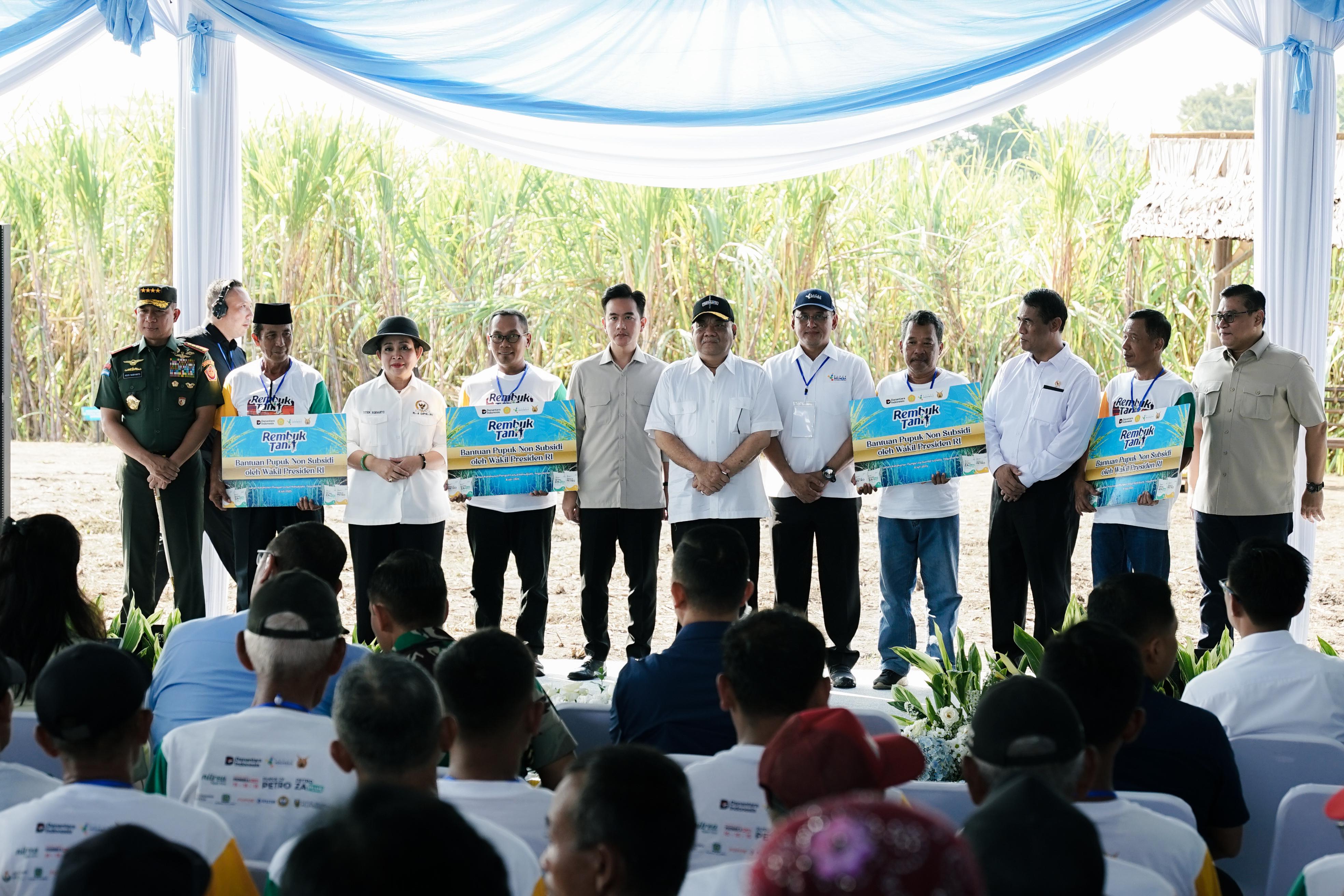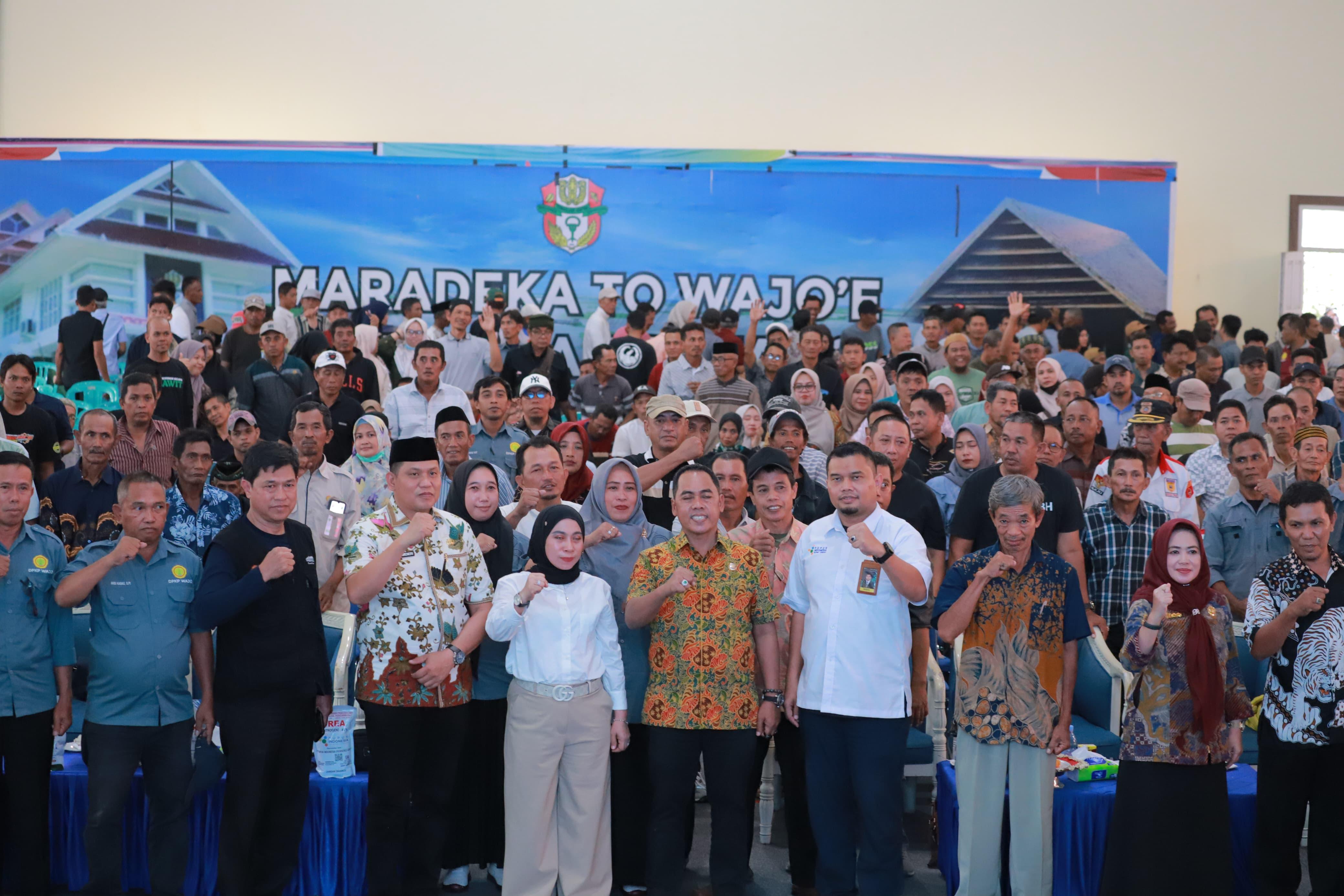Pupuk Indonesia: Energy-Fertilizer Collaboration Key to Food Security

Tangerang, May 21, 2025 – PT Pupuk Indonesia (Persero) emphasized that close collaboration between the energy sector and the fertilizer industry is a crucial foundation for achieving national food security, which is part of the government’s Asta Cita vision.
“We want to stress that the collaboration between the fertilizer industry and the energy sector is very close. The energy sector plays an essential role in Indonesia’s success in achieving food self-sufficiency,” said President Director of Pupuk Indonesia, Rahmad Pribadi, at the Indonesia Petroleum Association Convention and Exhibition (IPA Convex) 2025 in Tangerang on Wednesday, May 21, 2025.
As a form of commitment to strengthening this synergy, Pupuk Indonesia signed two preliminary agreement documents to explore the potential for cooperation in utilizing natural gas from two oil and gas projects, namely the Masela Working Area and the South Andaman Working Area. The signing of these two documents took place during the IPA Convex 2025 event held in Tangerang, May 20–21, 2025.
The first agreement signed by Pupuk Indonesia was a Head of Agreement (HoA) with the JV of INPEX Masela Ltd – PT Pertamina Hulu Energi Masela and PETRONAS Masela Sdn. Bhd. The signing of the HoA between Pupuk Indonesia and the Masela block consortium will be the initial step toward collaboration in utilizing gas from the Abadi Field in the Masela Working Area.
Pupuk Indonesia plans to utilize gas supply from the Abadi Field to fuel a blue ammonia plant that will be built on Yamdena Island, Maluku. The plant, targeted to begin operations by 2030, is estimated to require a long-term gas supply of 150 million standard cubic feet per day (MMSCFD).
The development of the blue ammonia plant on Yamdena Island not only represents Pupuk Indonesia’s contribution to supporting the government’s Asta Cita vision in downstreaming and industrialization but also serves as an economic growth engine for eastern Indonesia. By utilizing the massive gas reserves in the Abadi Field, the project is expected to create local job opportunities and increase regional income (PAD).
In addition to the HoA signing, Pupuk Indonesia and Mubadala Energy also signed a Memorandum of Understanding (MoU) to explore potential cooperation in utilizing gas from the South Andaman Working Area. Through this agreement, both parties will assess the potential use of natural gas from the South Andaman field.
This cooperation exploration is related to Pupuk Indonesia’s plan to build methanol and blue ammonia production facilities. As known, the company is planning to construct a methanol plant and develop blue ammonia facilities in Nanggroe Aceh Darussalam, which is located near the South Andaman Working Area.
The methanol plant is expected to require a gas supply of 115 MMSCFD, while the blue ammonia plant is projected to need 85 MMSCFD. Through the MoU with Mubadala Energy, Pupuk Indonesia is exploring the possibility of meeting the gas supply needs for both facilities from the South Andaman field.
The methanol and blue ammonia projects also play an important role in supporting downstream efforts and the transition to a low-carbon energy future. This is because methanol and blue ammonia are clean energy commodities increasingly needed in the future energy ecosystem.
The Importance of Energy Sector and Fertilizer Industry Collaboration
President Director of Pupuk Indonesia, Rahmad Pribadi, emphasized the importance of close collaboration between the energy sector and the fertilizer industry in achieving national food security, a key part of the government's Asta Cita vision. Rahmad noted that the fertilizer industry is deeply linked with the energy sector, especially oil and gas, since natural gas is a primary raw material in fertilizer production.
“The energy sector plays a major role in the success or failure of Indonesia’s food security. Fertilizer contributes 62% to national agricultural productivity, and 75% of fertilizer raw materials come from the oil and gas sector,” said Rahmad at the IPA Convex 2025 event in Tangerang on Wednesday (May 21, 2025).
Rahmad further stated that the fertilizer industry is essentially a downstream extension of natural gas, crucial for agriculture. Therefore, he said, strengthening the synergy between the energy and fertilizer industries must continue to ensure food security.
“The first industry established by the Indonesian government was the fertilizer industry, which is fundamentally a form of natural gas downstreaming. That is why we have a long track record in downstreaming and must continue to build on it to strengthen Indonesia’s position in food security,” he said.
Pupuk Indonesia: A Key Player in Natural Gas Downstreaming
Rahmad added that Pupuk Indonesia will continue to develop efforts in natural gas downstreaming to support national food security. Currently, he said, the company is already a major player in downstreaming gas into ammonia and its derivatives. Going forward, Pupuk Indonesia will also expand its downstream portfolio into methanol-based products.
Not only in terms of products, Rahmad said Pupuk Indonesia will also transform its gas supply strategy. Until now, Pupuk Indonesia has built fertilizer plants near gas sources to ensure supply continuity. However, as gas demand increases, the company will begin adopting a new approach by using liquefied natural gas (LNG), which is more flexible.
“In the future, we will begin switching to LNG. We will start using LNG in significant volumes, and the proportion will continue to increase,” Rahmad said.







